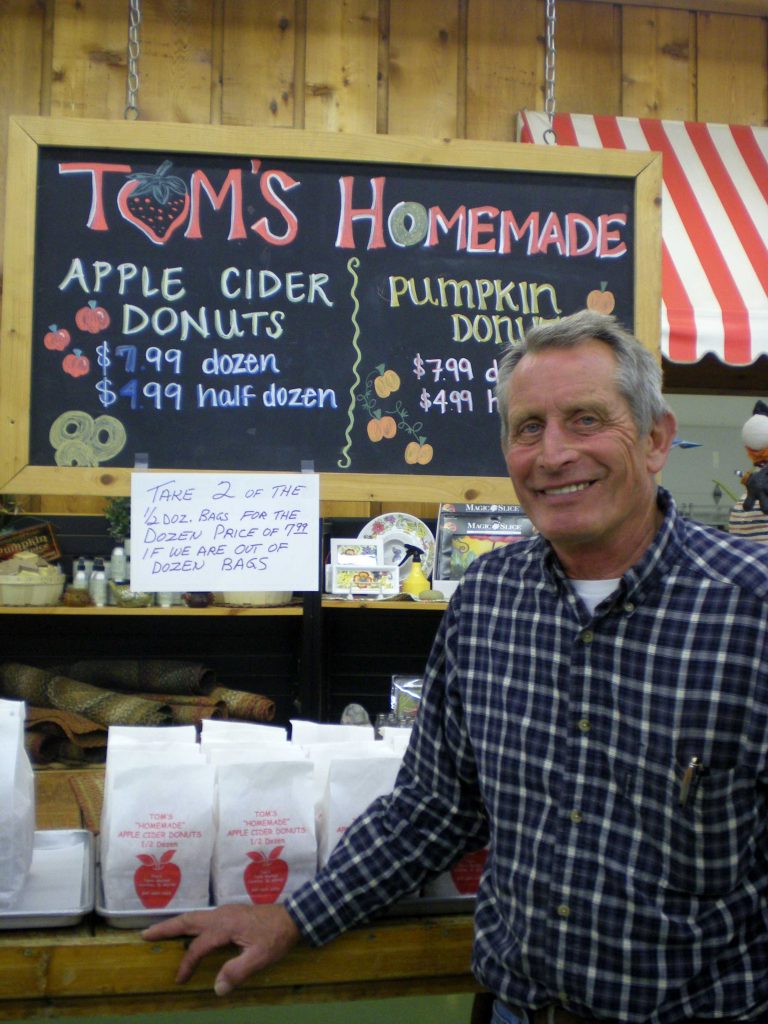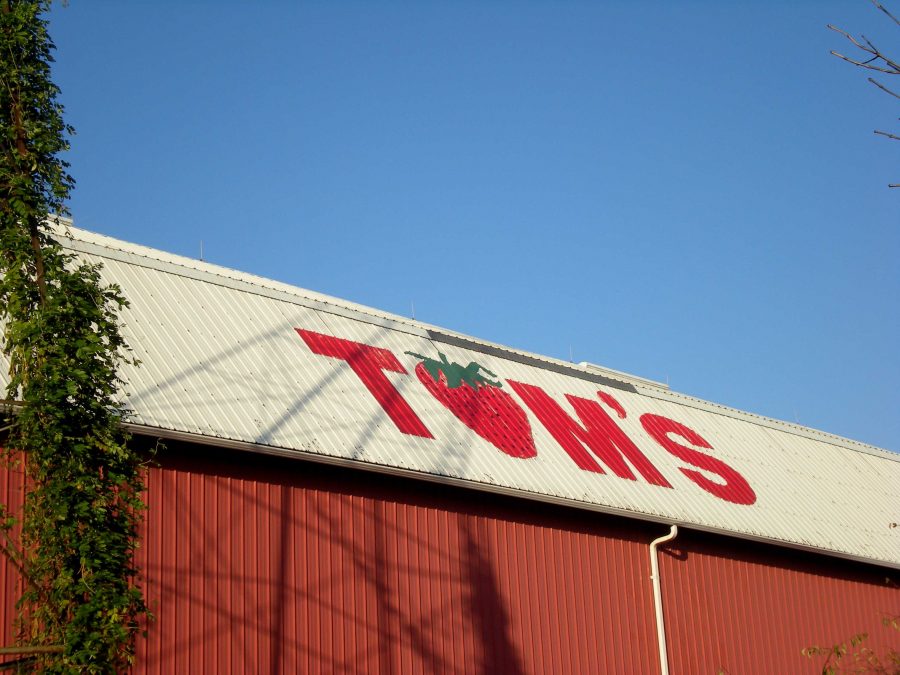 It was the late 1950s. The Korean War had ended, the Soviet Union had launched Sputnik 1, and in the small town of Bartlett, Ill., 10-year-old Tom Halat had decided that he wanted to become a farmer.
It was the late 1950s. The Korean War had ended, the Soviet Union had launched Sputnik 1, and in the small town of Bartlett, Ill., 10-year-old Tom Halat had decided that he wanted to become a farmer.
Growing up on a three acre “farmette” was just a taste of farm life, as the property was too small to support a full-fledged farm. The real inspiration for young Halat came from joining the local 4-H club, an organization for children and adolescents from age 10 to 21.
The club arranged for members to participate in projects that would prepare them for their futures, teach public speaking, and provide leadership skills. Common projects for Halat and his friends, as almost all members were farm children, included raising livestock, and later seeing if they could make a profit at the county fair by selling their projects.
“All of my friends were farmers,” said Halat, “And I decided that I would be one too.”
Throughout high school, Halat raised vegetables, corn, and soybeans on rented land, and remained in the 4-H club until he was 21. Using his profits from selling produce, he put himself through college, majoring in Plant and Soil Science at Southern Illinois University. During his senior year, he met his wife Cheryl, gratuated in 1967, and married the following December, Halat made farming his full-time focus and career.
Fast forward about 40 years, and Halat is still successfully following his dream, now as the owner of Tom’s Farm Market and Greenhouses on Algonquin Road.
Creating one of Huntley’s most popular staples was no cakewalk. Originally, Halat owned a small farm stand in Bartlett, which is still open today from mid-June to late October. When the farm he rented was sold to a developer for new housing, Halat decided that it was time to buy his own land. A realtor showed Halat the Huntley farm in 1976, and Halat fell in love.
“I took a styrofoam cup of soil home and showed it to Cheryl, and that’s how it happened,” said Halat. “We were so excited.”
Although it was originally a grain farm that grew corn and soybeans, Halat knew the soil at the Huntley location would be perfect for growing new produce and purchased the farm that November. The family soon built their new home, a white two-story that can still be seen on the property today, and began to replace the fields of grain with vegetables mainly pumpkins, fall squash, tomatoes, and sweet corn.
As the years went by, however, things began to change. The Halats watched as the land around them was developed, enveloping the farmland with a placid suburbia. The Halat’s farm was left in a “doughnut hole,” as Halat affectionately calls it, of farm land surrounded on all sides by expansion.
As their three children, Jeff, Mary, and Liz, grew up and eventually left for college, Tom and Cheryl continued to grow vegetables and sell them through the Bartlett farm stand. When their daughter Mary Manning returned home from the corporate world she left for after attending Iowa State, she realized that their family business would have to evolve along with the rapidly expanding community.
“She told me, ‘Dad, you’re dragging your feet. You need to make some changes if you’re going to keep up with the future,’” said Halat. “And I was all for it.”
Halat had so much faith in his daughter’s vision that he borrowed $1 million to begin building a store to coincide with his farm.
This leap of faith turned out to be a profitable investment, and now, 13 years later, he has no regrets. The store’s bakery has been expanded three times to keep up with the ever-increasing demand for baked goods, and over 80,000 square feet of production greenhouses have been built to supply the store’s garden center with plants and flowers, grown directly from seeds and cuttings, unlike major chain garden stores.
During the summer season, Halat drives twice a week to Chicago produce markets to purchase produce that is not grown at his farms, which he has done for years since first opening the farm stand in Bartlett. Halat must wake up at 1 a.m. to get to the market on time, just hours earlier than his usual waking time of 4 a.m.
“When I was little, I remember being so worried that he would be alone and fall asleep that I would go with him,” said Manning. “It was always such a treat to get up early and watch him go about things.”
Business in the store was booming, but three years ago in June, tragedy struck, and no amount of success could compensate for the loss of Halat’s wife, Cheryl, to ovarian cancer. The other half of Tom’s Farm Market and Greenhouses (and Halat’s best friend) was gone forever.
“Without Cheryl, we wouldn’t be anywhere near this successful today,” said Halat. “She was the unseen hero behind our farm.”
When people ask to talk about his wife, Halat raises his head defiantly, as if to challenge the world.
“You go right ahead,” said Halat. “I’m proud of her.”
The tribute wall in the store’s cafe shows Halat’s great loss. Cheryl’s original apron, faded with age from red to a dusty pink, proudly displays the Tom’s logo from behind its glass covering, and numerous pictures of Halat’s other half smile down from their perches on the wall. Another photograph shows the street sign for Cheryl Halat Memorial Drive, located at Centegra Health Campus in her honor.
“I miss my mom dearly. As my dad worked, she was the glue that kept everything together,” said Manning. “When we were younger, she would make sure we worked and that we went to church every Sunday. Family is just so important to us.”
Despite Halat’s tragic personal loss and the many challenges he has faced along the way, the farm continues to prosper. A major factor in this success has been the annual Tom’s Fall Festival held in October. Some major attractions for the festival are the corn maze, petting zoo, and the pick-your-own-pumpkin field. This year, however, the pick-your-own-pumpkin field that Halat plants specifically for the fall season was ravaged by a soil disease that destroyed every pumpkin, and Halat was forced to bring in pumpkins from the other two farms he owns in Franklinville and Union.
“This is the first year I’ve ever had total failure in the field,” said Halat. “This soil disease is one we just can’t get rid of.”
Along with the pumpkins, Halat has also lost zucchini squash and other vine plants.
Even though there have been some bumps along the road, Halat says that this year there has been a good turnout for the festival, and every year the celebrations get bigger.
“We try to add at least one new attraction every year,” says Halat, who has been running the festival for 15 years and giving educational tours of the farm for 25 years.
One difference from past years is that the usually square shaped corn maze has been changed to an elongated rectangle because of the nearby Centegra Health Bridge building.
“We decided to sell some of our land to Centegra five years ago in 2006,” said Halat. “We knew that at some point in time, residential and agriculture just couldn’t get along.”
Apparently, some neighbors were complaining about dust from the fields.
“Centegra came to us, and Cheryl and I decided that it would benefit the community, and would also block our neighbors from the dust. We wouldn’t ever want there to be a negative impact.”
Halat’s concern for the community goes much further than just the Centegra center. According to employee Peggy Bergquist, who has worked at the farm market for 11 years, Halat is involved in many charitable programs in the Huntley area, including ovarian cancer, an issue close to his heart.
“We definitely try to put the poor and the needy first,” said Manning.
At least twice a week, members of the Little Sisters of the Poor organization come to the farm to collect produce and baked goods donated by Halat. The crimson poinsettias adorning the altar at Saint Mary’s Church around the Christmas season are also compliments of Halat. Hanging basket fundraisers for different organizations around Huntley are another way he gives back to the community that has shown his farm market so much support throughout the years.
“Just this season, Tom donated some cornstalks and hay bales to Heineman’s library to use in their displays,” said Bergquist, “People come to him all the time for donations and support.”
The farm’s staff, consisting of about 25 people regularly and 50 to 60 during the busy fall season, has felt Halat’s compassion and care first hand. When Bergquist moved to area from Washington, she decided that working part time at the market while her children attended school would be an ideal situation. After showing Halat pictures of the garden she had maintained at her former house, she was immediately hired.
When Bergquist told Halat that she would have to turn the job down because she wanted to be with her children when they got off of the bus, Halat changed her work schedule so that she could be with her family. Bergquist accepted.
“It was a no-brainer. My kids were the main priority for both of us, and family really mattered to him. That’s why I never left, and probably why I’ll never leave,” said Bergquist. “Working here is like working for my own family. We [employees] never leave because we’ve made such an attachment.”
Overall, Halat believes the business that he and Cheryl built has been worth all of the hard work and dedication.
Manning agrees.
“His whole life is this place. He puts his heart and soul into it, and he takes a lot of pride in what he does. He wants what he sells to be what’s best for the community. It’s what our customers expect.”
“This business has expanded with both Cheryl’s ideas and mine, and all of our accomplishments have been very rewarding,” said Halat. “We’ve put everything into this business to try to make it the best it can be.”

